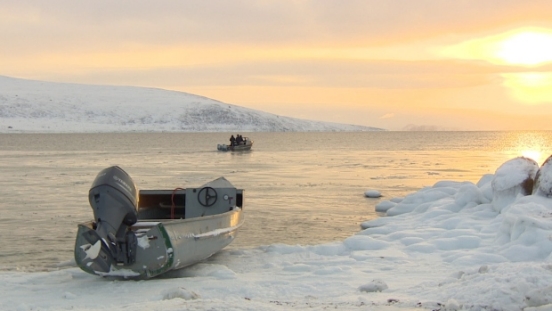
By Elyse Skura
A remote Nunavut community heads to the Supreme Court of Canada today to argue a case which could literally set the ground rules for how Indigenous communities are consulted about development projects.
Inuit in Clyde River say they weren’t properly consulted when the National Energy Board granted approval for an Norwegian-based consortium of company to conduct seismic tests in Baffin Bay and Davis Strait.
“This case is really about the soul of Canada,” said Nader Hasan, the lawyer representing Inuit in Clyde River.
“Are we going to be a nation that takes Indigenous and Inuit rights seriously? Or are we going to allow Indigenous rights to be reduced to a due diligence checklist for industry proponents to check off?”
It’s been a long and difficult legal battle against opponents with deep pockets, says Hasan.
Inuit argue the case puts 4,000-year-old traditions and their very lives at risk.
The companies would use airguns to produce pulses of sound waves under the waters offshore from a number of Baffin Island communities.
According to a project overview on the National Energy Board website, the sound created by the airguns “is estimated to be 230 decibels at a distance of one metre away, and will be repeated every 13 to 15 seconds, 24 hours a day while operating.”
Inuit in Clyde River are concerned the sounds may be loud enough to scare away or deafen the marine mammals they rely on for food — a significant worry for a region where food insecurity is “a very serious problem.”
In Nunavut, basic food items in grocery stores can cost up to three times higher than in the rest of Canada.
The latest government statistics pegged the average cost in Nunavut of a one-kilogram bag of apples at $7.26 and a 2.5-kilogram bag of flour at $13.70.
“It’s a threat to their livelihood,” said Hasan. “Obviously Inuit were concerned.”
The consortium was granted a five-year approval to use the tests to search for underwater oil and gas deposits in 2014 — but has not done any yet.
The Supreme Court will hear Clyde River’s case along with an appeal from the Chippewas of the Thames.
The First Nation is also arguing the National Energy Board approved a development project without proper consultation — this time a partial reversal of a pipeline carrying heavy crude.
“Both cases at their core are about the duty to consult and the crown’s obligation to respect Indigenous rights, Inuit rights,” said Hasan.
“Quite literally, these cases will affect every single development project across the country.”
The hearing is set to begin tomorrow morning in Ottawa at 9:30 a.m. ET.
Source: CBC News


Be the first to comment